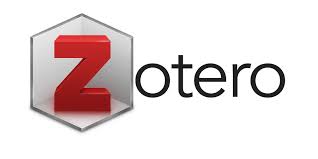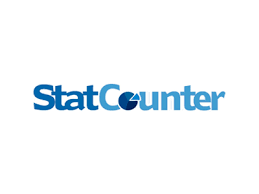Praktikalitas Bahan Ajar Geometri Berbasis Modifikasi Model Project Based Learning (PjBL) “Kapal Nabi Nuh” untuk Mengembangkan Kemampuan Berpikir Kreatif Mahasiswa
DOI:
https://doi.org/10.29240/ja.v6i1.9868Keywords:
Bahan Ajar, Geometri, PjBLAbstract
The available geometry teaching module at IAIN Kerinci still do not adequately accommodate students to discover material through scientific project tasks, and they are not yet integrated with Islamic values. The purpose of this research is to examine the practicality of geometry teaching materials based on modified Project Based Learning (PjBL) "Kapal Nabi Nuh." This type of research is Research and Development (R&D) using the 4-D model (Define, Design, Develop, Disseminate). The subjects of this research are 15 students of Class 2A in the Department of Mathematics Teaching at IAIN Kerinci. The instrument used in this research is a practicality questionnaire sheet assessed by the geometry course lecturer and students. The results of this research are geometry teaching module based on modified Project Based Learning "Kapal Nabi Nuh" declared practical, with a practicality response rate from lecturers obtained at 76.9% and from students obtained at 82.6%.
Downloads
References
Barlenti, I., Hasan, M., & Mahidin, M. (2017). Pengembangan LKS Berbasis Project Based Learning untuk Meningkatkan Pemahaman Konsep. Jurnal Pendidikan Sains Indonesia (Indonesian Journal of Science Education), 5(1), 81-86. https://jurnal.usk.ac.id/JPSI/article/view/8415
Billah, A., Khasanah, U., & Widoretno, S. (2019, December). Empowering higher-order thinking through project-based learning: A conceptual framework. In AIP Conference Proceedings (Vol. 2194, No. 1). AIP Publishing. https://doi.org/10.1063/1.5139743
Delyana, H., Fauzan, A., Armiati, A., Gistituati, N., & Asmar, A. (2021). Pengembangan Modul Statistika Berbasis Project Based Learning. Jurnal Cendekia: Jurnal Pendidikan Matematika, 5(3), 2313-2323. https://doi.org/10.31004/cendekia.v5i3.772
Isa, N. M. (2021, September). Simbolik geometri dalam kesenian Islam. In Prosiding Seminar Antar Bangsa Indonesia-Malaysia “Konstruksi Ruang Kreatif, Simbolik, Spiritual Seni Pertunjukan dalam Masyarakat Melayu” Singgasana Budaya Nusantara Malang (Vol. 10, pp. 27-59). https://core.ac.uk/download/pdf/528358933.pdf#page=34
Ismail, R., Rifma, R., & Fitria, Y. (2021). Pengembangan Bahan Ajar Tematik Berbasis Model PJBL di Sekolah Dasar. Jurnal Basicedu, 5(2), 958-965. https://doi.org/10.31004/basicedu.v5i2.808
Maarif, S., Raditya, A., & Perbowo, K. S. (2018). Introducing geometry concept based on history of Islamic geometry. In Journal of Physics: Conference Series (Vol. 948, No. 1, p. 012040). IOP Publishing. https://doi.org/10.1088/1742-6596/948/1/012040
Mariana, S., Yulia, P., & Rusliah, N. (2021). Validitas Lembar Kerja Matematika Siswa Berbasis Contextual Teaching And Learning dengan Pendidikan Lingkungan. AdMathEdu, 11(2), 165-180. https://doi.org/10.12928/admathedu.v11i2.20132
Maskar, S., & Dewi, P. S. (2020). Praktikalitas dan Efektifitas Bahan Ajar Kalkulus Berbasis Daring Berbantuan Geogebra. Jurnal Cendekia: Jurnal Pendidikan Matematika, 4(2), 888-899. https://doi.org/10.31004/cendekia.v4i2.326
Nasution, E. Y. P. (2018). Analisis Terhadap Disposisi Berpikir Kreatif Siswa pada Pembelajaran Matematika. Edumatika: Jurnal Riset Pendidikan Matematika, 1(1), 44–55. https://doi.org/10.32939/ejrpm.v1i1.217
Panjaitan, Y. F. (2023). Pengembangan Bahan Ajar Kimia Berbasis Project Based Learning pada Materi Larutan Elektrolit dan Nonelektrolit. Educenter: Jurnal Ilmiah Pendidikan, 2(1), 88-95. https://doi.org/10.55904/educenter.v2i1
Prananda, M. R., Proboningrum, D. I., Pratama, E. R., & Laksono, P. (2020, February). Improving Higher Order Thinking Skills (HOTS) with Project Based Learning (PjBL) Model Assisted by Geogebra. In Journal of Physics: Conference Series (Vol. 1467, No. 1, p. 012027). IOP Publishing. http://doi.org/10.1088/1742-6596/1467/1/012027
Putri, R. I. I., & Aisyah, N. (2020). Learning Integers with Realistic Mathematics Education Approach Based on Islamic Values. Journal on Mathematics Education, 11(3), 363-384. http://doi.org/10.22342/jme.11.3.11721.363-384
Ramdhani, L., Fauzi, A., & Widia, W. (2020). Analisis Kemampuan Berpikir Kreatif Siswa dalam Pemecahan Masalah Geometri Ruang. Jurnal Ilmiah Mandala Education, 6(2). http://dx.doi.org/10.58258/jime.v6i2.1280
Riduwan, M. B. A. (2003). Dasar-Dasar Statistika. Bandung: CV Alfabeta.
Satriawati, G., Kholis, N., Dwirahayu, G., & Sobiruddin, D. (2023). Pengembangan Bahan ajar transformasi geometri berbantuan website: Pendekatan Project-Based-Learning Mozaik Geometri. JINoP (Jurnal Inovasi Pembelajaran), 9(1), 1-15. https://doi.org/10.22219/jinop.v9i1.23581
Sari, D. S., & Wulanda, M. N. (2019). Pengembangan Lembar Kerja Mahasiswa Berbasis Proyek dalam Meningkatkan Kemampuan Berfikir Kreatif Mahasiswa. Natural: Jurnal Ilmiah Pendidikan IPA, 6(1), 20-33. https://doi.org/10.30738/natural.v6i1.4073
Schoenfeld, A. H., & Sloane, A. H. (2016). Mathematical Thinking and Problem Solving. Routledge. https://doi.org/10.4324/9781315044613
Siregar, N. F., & Nasution, E. Y. P. (2019). Pembelajaran Matematika Berbasis Higher Order Thinking Skills. In Curup Annual Conference on Math (CACM) (Vol. 1, No. 1, pp. 21-26). https://prosiding.iaincurup.ac.id/index.php/cacm/article/view/10
Trianto. (2013). Model Pembelajaran Inovatif-Progresif Konsep, Landasan, dan Implementasi pada Kurikulum Tingkat Satuan Pendidikan (KTSP). Jakarta: Kencana.
Widyaningsih, S. W., & Yusuf, I. (2020). Implementation of Project-Based Learning (PjBL) Assisted by E-Learning through Lesson Study Activities to Improve the Quality of Learning in Physics Learning Planning Courses. International Journal of Higher Education, 9(1), 60-68. https://doi.org/10.5430/ijhe.v9n1p60
Wulantina, E. (2022). Pengembangan E-Modul Aljabar Linear dengan Pendekatan Pendidikan Matematika Realistik Berbasis Nilai-Nilai Keislaman. JNPM (Jurnal Nasional Pendidikan Matematika), 6(2), 316-325. http://dx.doi.org/10.33603/jnpm.v6i2.6103
Yulia, P., Febriza, E., & Erita, S. (2021). Development Of Etnomathematics Based Flat Building Handouts for Students Class VII SMP: Pengembangan Handout Bangun Datar Berbasis Etnomatematika untuk Siswa Kelas VII SMP. Mathline: Jurnal Matematika dan Pendidikan Matematika, 6(2), 207-221. https://doi.org/10.31943/mathline.v6i2.231
Yulia, P., & Nasution, E. Y. P. (2024). Geometry and Islamic Values: Validity of Teaching Materials Based on Modified Project-Based Learning Model. Mosharafa: Jurnal Pendidikan Matematika, 13(1), 113-124. https://doi.org/10.31980/mosharafa.v13i1.1980
Yulia, P., & Santoso, G. (2022). Praktikalitas dan Efektifitas Lembar Kerja Peserta Didik Berbasis Etnomatematika. Pythagoras: Jurnal Program Studi Pendidikan Matematika, 11(2), 202-212. https://doi.org/10.33373/pythagoras.v11i2.4506
Downloads
Published
Issue
Section
Citation Check
License
Copyright (c) 2024 Eline Yanty Putri Nasution, Putri Yulia

This work is licensed under a Creative Commons Attribution-NonCommercial-ShareAlike 4.0 International License.
Authors who publish with ARITHMETIC: Academic Journal of Math agree to the following terms:
- Authors retain copyright and grant the journal right of first publication with the work simultaneously licensed under a Creative Commons Attribution-NonCommercial-ShareAlike 4.0 International License (CC BY-NC-SA 4.0) that allows others to share the work with an acknowledgment of the work's authorship and initial publication in this journal.
- Authors are able to enter into separate, additional contractual arrangements for the non-exclusive distribution of the journal's published version of the work (e.g., post it to an institutional repository or publish it in a book), with an acknowledgment of its initial publication in this journal.
- Authors are permitted and encouraged to post their work online (e.g., in institutional repositories or on their website) prior to and during the submission process, as it can lead to productive exchanges, as well as earlier and greater citation of published work (See The Effect of Open Access).







